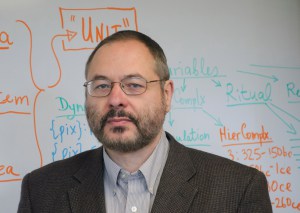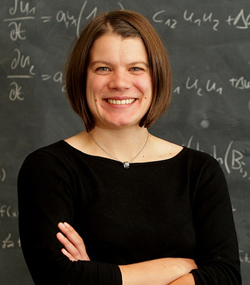Peter Turchin (Complexity Science Hub–Vienna and University of Connecticut)

Peter Turchin is a scientist and an author who wants to understand how human societies evolve, and why we see such a staggering degree of inequality in economic performance and effectiveness of governance among nations (see Research Interests). Peter’s approach to answering these questions blends theory building with the analysis of data. He is the founder of a new transdisciplinary field of Cliodynamics, which uses the tools of complexity science and cultural evolution to study the dynamics of historical empires and modern nation-states.
Peter has published two hundred articles, including a dozen in such top journals as Nature, Science, and PNAS (see Academic Publications). His publications are frequently cited and in 2004 he was designated as “Highly Cited Researcher” by ISIHighlyCited.com. Turchin has authored seven books (see his website), including Secular Cycles (with Sergey Nefedov, Princeton, 2009), and War and Peace and War (Penguin, 2005).
webpage: peterturchin.com
Anne Kandler (Max Planck Institute for Evolutionary Anthropology)

Anne Kandler is an applied mathematician interested in the underlying principles of cultural change especially in changing environmental conditions. Cultural change is often expressed by frequency changes of cultural traits, i.e. behaviour learnt socially, within and across populations. Social learning, however, can occur in a large variety of ways and my research aims at establishing why certain learning mechanisms evolved and in which situations they are expected to be present. In particular she is interested in bridging theoretical and empirical work in cultural evolution and focus on understanding the limits of inferability of underlying evolutionary processes from population-level data. She explores the question of how much information about social learning mechanisms is contained in observed frequency distributions describing a specific episode of cultural change. To do so she develops simulation and statistical inference methods to create frameworks for analysing cultural change accounting for the problem of equifinality.
webpage: eva.mpg.de
Abstract:
Understanding how social information is used in human populations is one of the challenges in cultural evolution. Fine-grained individual-level data, detailing who learns from whom, would be most suited to answer this question empirically but this kind of data is difficult to obtain especially in pre-modern contexts. Therefore inference procedures have often been based on population-level data in form of frequency distributions of a number of different variants of a cultural trait at a certain point in time or of time-series that describe the dynamics of the frequency change of cultural variants over time, often comprising sparse samples from the whole population. In this talk we demonstrate that there exist theoretical limits to the accuracy of the inference of underlying processes of cultural transmission from aggregated data highlighting the problem of equifinality especially in situations of sparse data. Crucially we show the importance of rare variants for inferential questions. The presence, or absence, of rare variants as well as the spread behaviour of innovations carry a stronger signature about underlying processes than the dynamic of high-frequency variants. On the example of the choice of baby names, we illustrate that the consistency between empirical data, summarized by the so-called progeny, and hypotheses about cultural evolution such as neutral evolution or novelty biases depends entirely on the completeness of the data set considered. Analyses based on only the most popular variants, as is often the case in studies of cultural evolution, can provide misleading evidence for underlying processes of cultural transmission.
